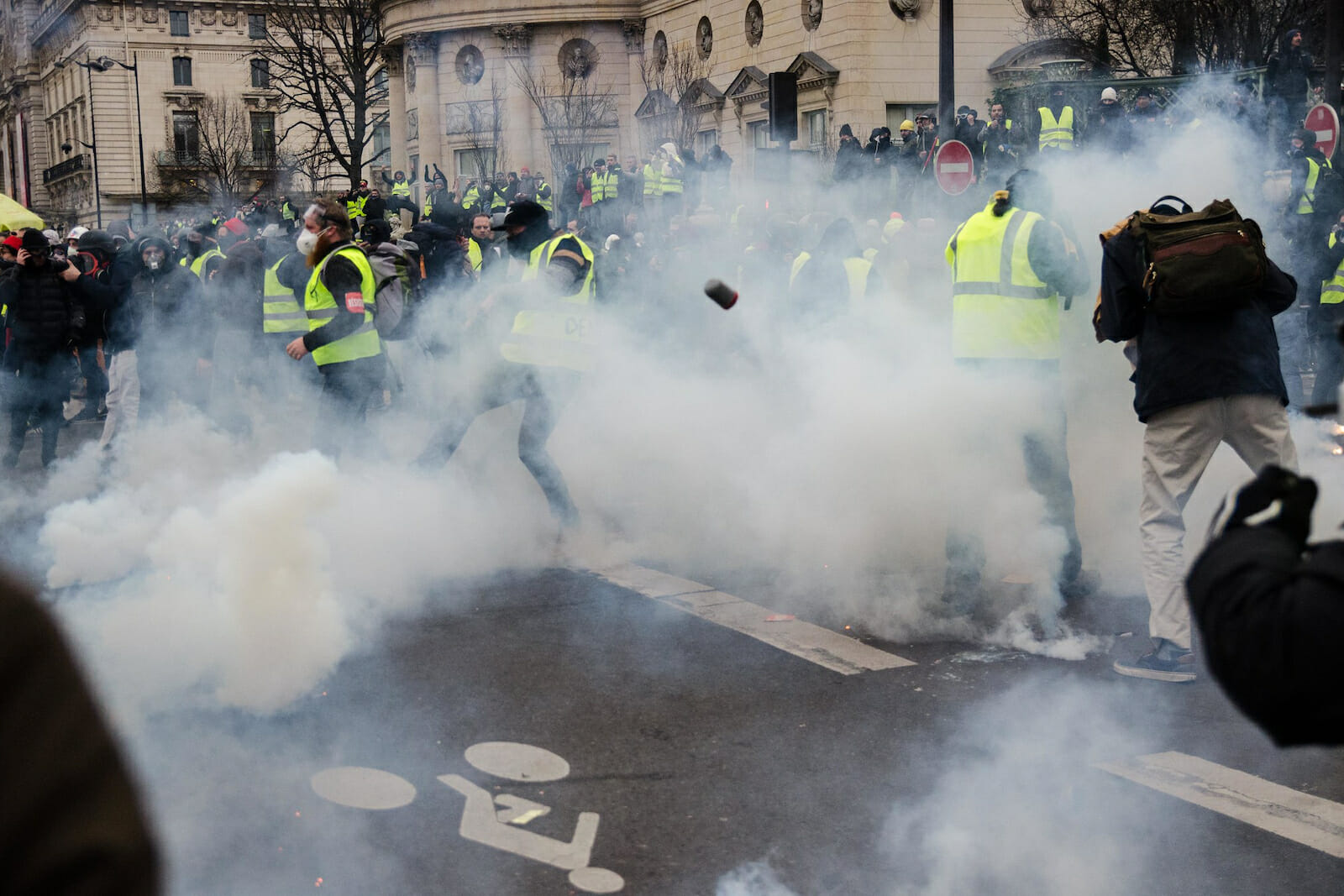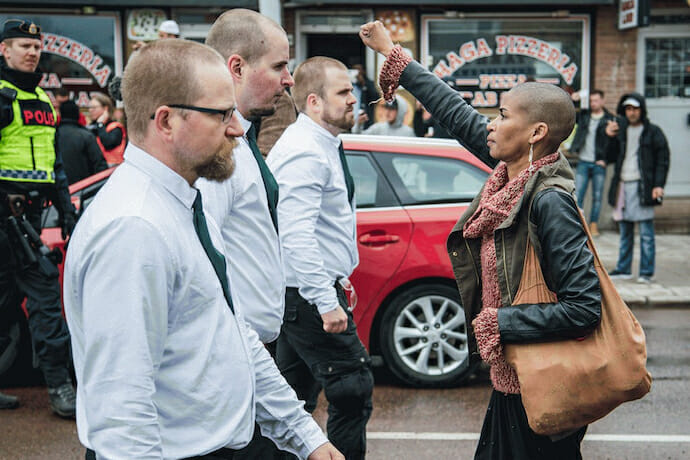
COVID-19: Indicators of Unconventional Warfare against the West
One could argue about the seriousness of the biological threat of the coronavirus pandemic, but it is already clear today that the socio-economic and geopolitical consequences of the pandemic will be truly devastating. The crisis will in all likelihood cause an economic recession, increase poverty, exacerbate social conflicts and inevitably lead to the radicalization of many social groups, not only in third world countries, but also in NATO and EU member states. Russia and China, which have been steadily building up their own instruments of political and unconventional warfare in these countries in recent years, are ready to use this crisis to the fullest extent to weaken the West as a whole and the geopolitical position of the United States in particular.
Unfortunately, the West is unable to counter this new type of warfare, and continues to ignore these hybrid threats. Western policymakers still lack the understanding that Russia’s and China’s great power strategic competition is, by nature, a continuation of the Cold War, and therefore has the character of a well-planned total confrontation rather than just opportunism, as some experts are trying to convince us.
Observing the investments made by Russia and China in recent years in the West in influencing right-wing and left-wing radical organizations, separatist movements, trade unions, political parties and the media, we have repeatedly warned that these are indicators of preparation for full-scale unconventional warfare. Unconventional warfare, whose original meaning in the West, unfortunately, have been forgotten not only by civilian politicians, but also by much of representatives of the military and special services.
The main task of unconventional warfare is to support anti-government forces in a hostile country in order to coerce, disrupt and overthrow the local regime. Such anti-government activities, even in accordance with official U.S. documents governing the USSOCOM, include, but are not limited to, armed guerrilla warfare and may include other forms of both violent and non-violent resistance.
Certainly, the success of any anti-government activities requires preconditions. The socio-economic crisis that the pandemic has brought with it creates these preconditions in sufficient numbers. And the tools of unconventional warfare, created just before the eyes of the Western governments, are ready to take full advantage of these preconditions.
In recent weeks, right-wing radical organizations have been stepping up in the West to try to use the coronavirus crisis for their own propaganda and calls for the overthrow of the “liberal system.” Much of these organizations are known for having links with Russian intelligence agencies directly or through the Kremlin-controlled Russian paramilitary organizations, participating in Kremlin active measures, conducting military training in Russia, and even participating in Russian aggression against Ukraine in the Crimea and in the Donbas.

Simon Lindberg, the leader of the neo-Nazi Nordic Resistance Movement, writes that the pandemic creates the preconditions for a national uprising and the strengthening of revolutionary forces that are bound to build a new world on the ruins of this capitalist world. The Nordic Resistance Movement is a Pan-Nordic extremist organization that aims to create a national-socialist republic through a revolution that unites Norway, Sweden, Finland, Denmark, Iceland, and the Baltic countries. Members of the organization involved in terrorist acts in Europe attended military training in the Russian Federation.
Roberto Fiore, leader of Forza Nuova, the Italian right-wing party, accuses the government of a “sanitary dictatorship” that has already led to famine and claims that his party will be on the side of the people in the future uprising. Roberto Fiore sympathizes with Vladimir Putin and actively participates in Russian anti-Western activities. Forza Nuova, along with France’s National Front, Hungary’s Jobbik, the British National Party, the Belgian Flemish Interest, and the Polish Falanga, participated in a Russian-sponsored conference in Crimea in 2014, where they publicly supported Russian aggression.
Even in the U.S., neo-Nazi organizations welcome the pandemic and call for social chaos to further destabilize liberal democracy. Such organizations include The Base, a paramilitary organization that aims to overthrow existing governments through violence and terrorism. The organization is active in the U.S., Canada, Australia, and South Africa. Its leader Rinaldo Nazzaro coordinates the group from the Russian Federation, where he lives with his Russian wife and children.
Far-left groups are also preparing for radicalization during the pandemic. In Germany, left-wing radicals have called for “making a revolutionary contribution to outbreaks of anger, protests, uprisings, and unrest” and threatening attacks on energy systems to “disrupt production cycles.”
However, in today’s world, attacks on the energy supply system is not the most effective tool of economic sabotage. In “the battle to close the factories,” as editor-in-chief of the Marxist web portal Fred Weston calls it, the main tool is strikes.
The nationwide strikes in March in Italy have already forced the government to close a number of important enterprises, including in the metallurgical, chemical, aviation, and automotive sectors. The main organizers of the strike were the trade unions USB and CGIL, which are historically close to the Italian Communist Party and the Soviet special services. USB is still a member of the World Federation of Trade Unions (WFTU), which was established as a front organization to cover the activities of the KGB and still takes an aggressive anti-Western and anti-NATO position.
France’s largest union, the CGT, called for a strike of employees of retail, logistics, and security. CGT was one of the founders of the pro-Soviet World Federation of Trade Unions and historically close to the Communist Party of France. Philippe Martinez, the CGT leader, is an ex-member of the Communist Party of France, an active participant in the Yellow Vest protests.
#GeneralStrike, a social media campaign, was launched in the U.S. calling for the complete shutdown of its economy. Supporting the campaign hashtag #NotDying4WallStreet just got over 116,000 tweets and became the third most popular hashtag in the United States. A wildcat strike pandemic is also expanding in the U.S.
Of course, strikes only deepen a country’s economic crisis. However, in this battle to halt the economy, the organizers are seeking not to solve economic problems, but to radicalize workers and promote revolutionary ideas.
They are not the only ones capable of using radicalization to their own advantage. Italian law enforcement officials warn that organized crime in its southern regions is trying to exploit the crisis and organize riots there. The mayor of Palermo says that mafia officials are already using social networks to incite Sicilians to commit illegal acts. The Italian mafia has close links with its Chinese counterparts, and those in turn with China’s special services. A similar system of interconnections is built between Russian organized crime and its special services. The international nature of Russian and Chinese organized crime, their global presence and links with other criminal networks, makes it possible to spread Sicilian experiences in other countries.
There is no doubt that the Russian and Chinese special services, formed as a tool for the world revolution, will not lose the opportunity to use this crisis for global destabilization in their own interests. After all, using the global crisis for world revolution is the basis of Marx and Lenin’s works, as well as Mao’s techniques.
Although the current leaders of China and Russia are unlikely to plan to build a worldwide people’s republic of workers and peasants, they are well aware of how to use the art of political warfare they have inherited. In global chaos, China, whose economy has already begun its recovery, may be the only island of stability. This may be enough to completely redraw the geopolitical map of the world. Russia, however, will be content with the role of a younger partner, whose hands will mostly be doing all the dirty work.
